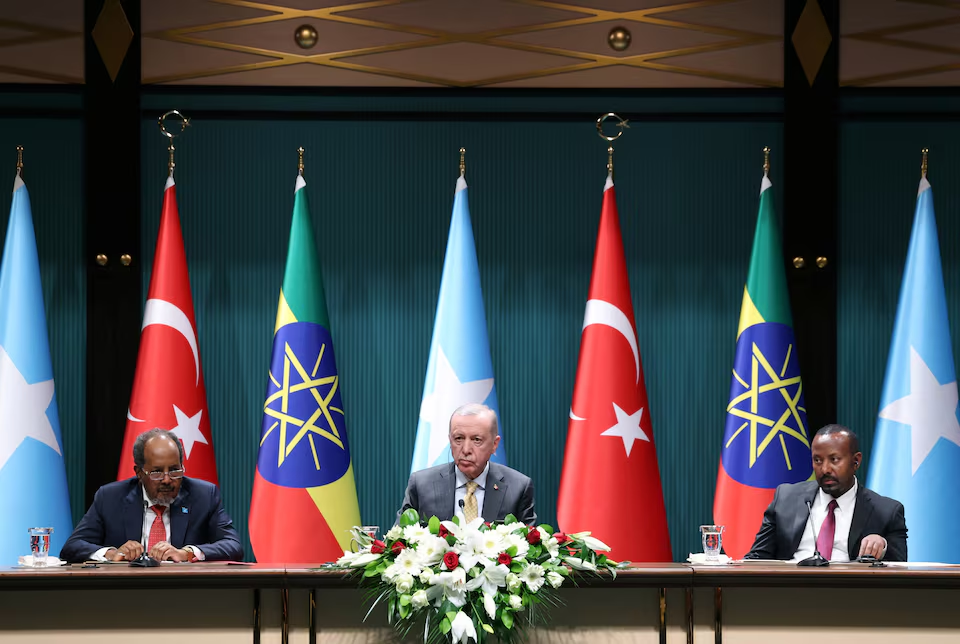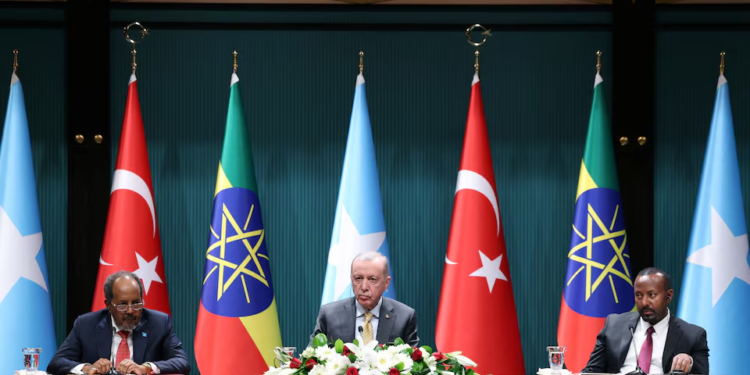
Somalia and Ethiopia have pledged to work together to resolve tensions surrounding Addis Ababa’s proposal to develop a port in Somaliland, the self-declared breakaway region of Somalia.
The diplomatic conflict began in January when Ethiopian Prime Minister Abiy Ahmed revealed plans for Ethiopia to gain access to a port in Somaliland.
In exchange, Ethiopia would offer a stake in its state-owned carrier, Ethiopia Airlines, and recognise Somaliland’s independence.
Somalia, which does not recognize Somaliland’s independence, strongly opposed the move stating that it will stop at nothing to maintain its territorial integrity. Somalia protested, saying the deal violated its territorial integrity, Reuters reported.
However, following discussions mediated by Turkish President Tayyip Erdogan, the leaders of both Somalia and Ethiopia have agreed to collaborate on finding commercial solutions that would provide Ethiopia, a landlocked country, with “reliable, secure, and sustainable access to and from the sea.”
Somalia remains staunchly opposed to international recognition of Somaliland, despite the region governing itself with relative peace and stability since declaring independence in 1991. Somalia has also warned that corporations recognizing Somaliland as an independent state would be met with some penalty.
In a joint statement issued late Wednesday, Somalia and Ethiopia announced plans to initiate technical negotiations by the end of February next year, with a commitment to conclude them within four months.
Somalia’s President Hassan Sheikh Mohamud said he was ready to work with Ethiopia, while Ethiopian Prime Minister Abiy Ahmed welcomed Turkish efforts to resolve the dispute, according to Reuters.
The dispute has pushed Somalia closer to Egypt, which has been in a longstanding quarrel with Ethiopia over the construction of a massive hydroelectric dam on the Nile River. Additionally, Somalia has strengthened ties with Eritrea, another of Ethiopia’s long-time adversaries.
Meanwhile, Turkey, which maintains strong relationships with both Ethiopia and Somalia, has played a pivotal role by training Somalia’s security forces and providing development assistance.









